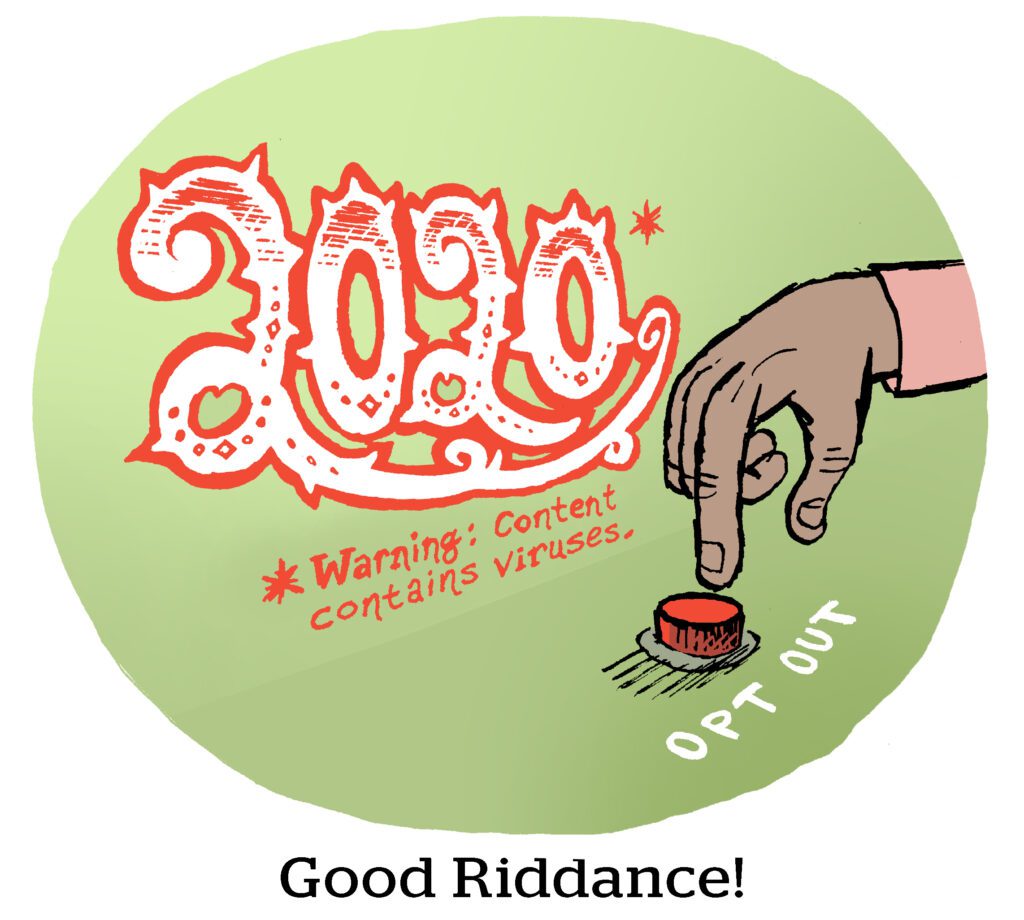Here’s today’s AdExchanger.com news round-up… Want it by email? Sign up here.
Spare Me Your Change
Welcome to the new normal!
Actually, forget the exclamation mark. It’s the same old normal.
There are countless examples of so-called dramatic changes in how people shopped and spent their time throughout 2020 and 2021 – Zoom, Peloton, sweatpants, online shopping – but it’s become clear that we’re largely where we would have been anyway if COVID had never happened, writes Mark Ritson at Marketing Week.
COVID-related deviations are returning to staid growth trajectories or even declining.
“Which prompts the question: Why do marketers overstate and exaggerate change so much?” Ritson asks.
One of his theories is that marketers themselves are younger than most average consumers. They’re 20-somethings experiencing everything for the first time. In their own life experiences, they’ve yet to see titanic changes yield to boring flatlines of incremental growth. But reverting to the mean is what typically happens after the world gets shaken. It’s boring, but it’s true – and from a marketing perspective, “selling the status quo is bad business,” Ritson writes. You hear a lot about CTV advertising and other trendy categories from companies that, in fact, do mostly SEO, email marketing or banner display ads.
“Most disappointingly,” marketers sell change because it means safety, according to Ritson. Marketers don’t need to know what they’re talking about as long as they’re talking about the shiny new object in the sky.
Baked Apple
The EU’s Digital Markets Act, which could be completed as soon as this month, would place strict competition controls on companies that operate app stores and major internet platforms. Silicon Valley tech is the target, but Apple is most at-risk, reports The Wall Street Journal.
Apple has bitterly fought to maintain its App Store fee because every change it’s forced to make undermines its future arguments.
For instance, Apple frames its tight control over apps and iOS payments as a security issue. But if the EU forces Apple to allow third-party payments and more developer controls and user security is unaffected … well, then that argument loses its credibility.
“[Apple] will struggle to explain why government changes will radically change the iPhone when Google already does it, and it will struggle to explain why it can’t do it in the United States when it may soon do it in Europe,” one legal analyst tells the Journal.
This is more than just a rhetorical issue in the EU. Apple lost a court case in the Netherlands in January and was ordered to allow payment options for iOS developers.
But Apple has since made a mockery of that decision by continuing to take a 27% fee for every transaction not made through its store – just 3% less than what it charges for using the App Store’s own payment system. On Monday, Apple paid its ninth 5 million euro fine because it remains in breach of the law.
Shareholders vs. Growth
Amazon’s board approved $10 billion for share repurchases, Retail Dive reports.
Amazon had a $5 billion repurchase program from 2016 to 2020 that it never touched, so this may be a nothingburger. But Amazon’s history of reinvestment has been in marked contrast to legacy retail.
Walmart and Target, for instance, spent between $7 billion and $10 billion annually on share repurchases for most of the past decade – not counting the cautious pandemic year of 2020, when they spent a mere $2.6 billion and $600 million, respectively.
Walmart or Target could have used those budgets to acquire The Trade Desk, Roku, Pinterest and more if they snapped them up shortly after their IPOs during those years – with billions of dollars still to spare. That’s not even counting the multibillion-dollar sums those retailers pay in annual shareholder dividends, while Amazon pays no dividends.
For its part, Amazon bought Twitch and has made major investments in itself, including Amazon Prime, AWS and Amazon Ads.
But Amazon is now dealing with perhaps its first activist investors. For instance, some want it to spin out AWS, and repurchases are a way to quiet large investors. (The share price goes up, but the value of the company stays the same.)
But Wait, There’s More!
NBCU names iSpot.TV as its national “currency” for upfront ad buys. [MediaPost]
Meta retakes top spot in SKAdNetwork ranking in AppsFlyer’s first SKAN index. TikTok ranks No. 2 in engagement for non-gaming apps, and Google takes third. [release]
How your ad position and CTR impact conversion rate. [Search Engine Land]
Twitter, Vimeo, Automattic (which makes WordPress), Jodel and Seznam just launched the Open Internet Alliance, an advocacy group for not-giant tech platforms. [tweet]
Decentriq raises $15 million to expand its data clean rooms platform. [VentureBeat]
Spotted: A Google ad survey pop-up in Google Support docs. [tweet, h/t Zach Edwards]
You’re Hired!
Bluecore grows its leadership team with promotions and a new hire. [release]












